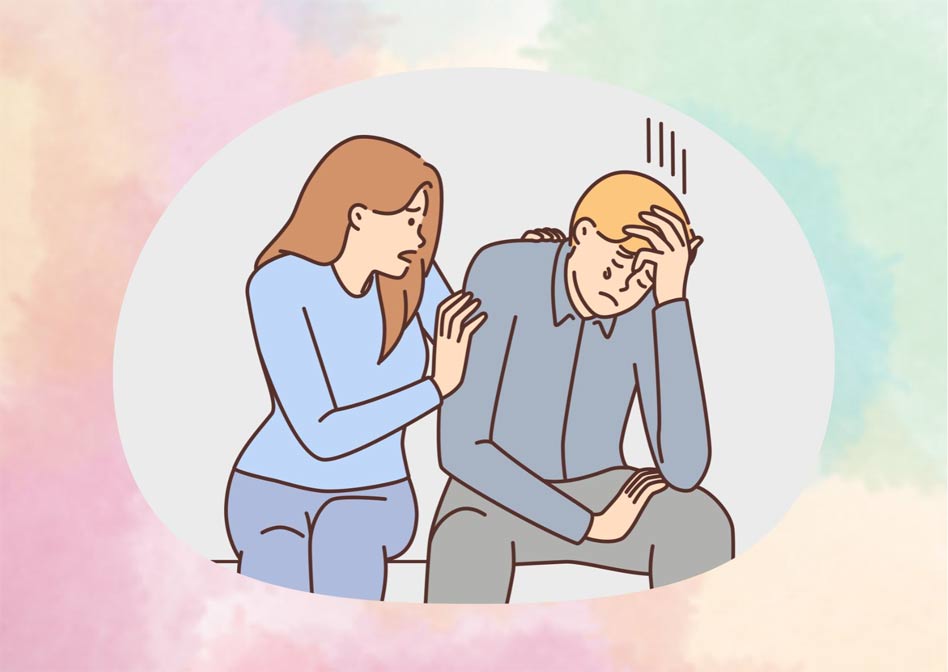How to ask about the patient
Any of us can get sick from a virus or encounter some accident. In this case, what is the best way to visit a sick person? Let's find out together!

How to ask about a sick person
People with the disease may feel isolated and even wait for others to reach out to them, so don't be afraid to express your concern just because you don't know what to say, says Michelle Maidenberg, a psychotherapist and visiting professor at New York University (NYU).
' It's important to acknowledge the challenges they're going through ,' she says. 'If someone says, ' I'm really having a hard time ,' just reflect back their feelings by saying something like, ' I hear this is really hard .''
Phrases to ask if a friend is sick
'I'm really sorry you're going through this.'
'How can I help?'
'How can I support you?'
'Would you like me to bring you some food? What is your favorite food?'
'What you just shared with me was so heartfelt and I really appreciate you opening up to me in this way.'
Things to say to someone who has just had surgery
'Sending you best wishes for a speedy recovery.'
'Please let me know if you need a ride or just want to talk.'
'How did the surgery go?'

Find the right words to say to a sick friend, family member, or co-worker
First, think about your relationship with the person and let that guide your approach.
' You might have a very close co-worker and a family member or spouse that you're not as close to ,' says Maidenberg . ' I think the closer the relationship is, the more you can help .'
No matter who the person is in your life, it's important to understand how you can support them. If someone has a lot of support, you don't have to feel pressured to help as much. But if you see that they lack support, it might be a good time to help.
For example, if you're reaching out to a coworker in a purely work relationship, you want to be supportive without prying, since they may not want their coworker to know the nature of their recovery, says Jenn Kennedy, a marriage and family therapist and professor at Antioch University in Santa Barbara.
What to say to a sick coworker
- So sad to hear you're sick.
- Sending love to you as you walk this journey.
- Get well soon and know that I am thinking of you.
When to send a card, text, email, or call someone who is sick
Listen to the person to understand how open they are about their condition. If they are private, give them space and understand their needs.
Card
Cards can be a good option for most people in life, especially those facing a long-term illness. It is a passive way to let someone know you care, and sending a card gives you the opportunity to write a heartfelt message.
Phone call
A phone call can be more intrusive, so save that for someone you have a closer relationship with. "Don't expect them to respond, but be prepared to leave a kind, brief message that shows you care," Kennedy says.
Texting
Texting is a great way to check in with your hugger, especially with close friends — but it can also put pressure on the person to respond and talk about their condition, even if they're not ready to do so.
If you're going to send a text, make sure to say something like, "I just wanted to let you know that I'm thinking about you. But I also wanted to let you know that you don't have to reply to me if you don't want to."
Email gives someone a little extra time to respond when they're ready. This type of check-in also gives you the opportunity to include a nice photo of the two of you together or a motivational photo.

Things to avoid when asking about sick people
If you say something that doesn't feel right, try again, says Kennedy. Avoid sentences that start with "at least" because it can make you feel like you're trying to find the good in the situation, which can make you feel awkward.
You should also avoid comparisons even if you've been through a similar illness or situation. "That doesn't mean the other person's experience is the same as yours," Maidenberg says. "It can inhibit communication."
Phrases to avoid saying to someone who is sick:
'Everything will be okay.'
'Time heals all wounds.'
'Maybe you can learn something from this.'
'It's better that this happened than…'
'Call me if you need anything.' (This puts the burden on them and requires them to ask for something.)
You should read it
- ★ Getting 'sick' is common in computer users
- ★ How to care for skin ulcers for long-term patients
- ★ 9 habits should be removed immediately if you do not want to be sick when it is cold
- ★ 6 How to prepare delicious oats for the elderly and the sick
- ★ When your body is tired and tired, the following foods will help you regain energy immediately